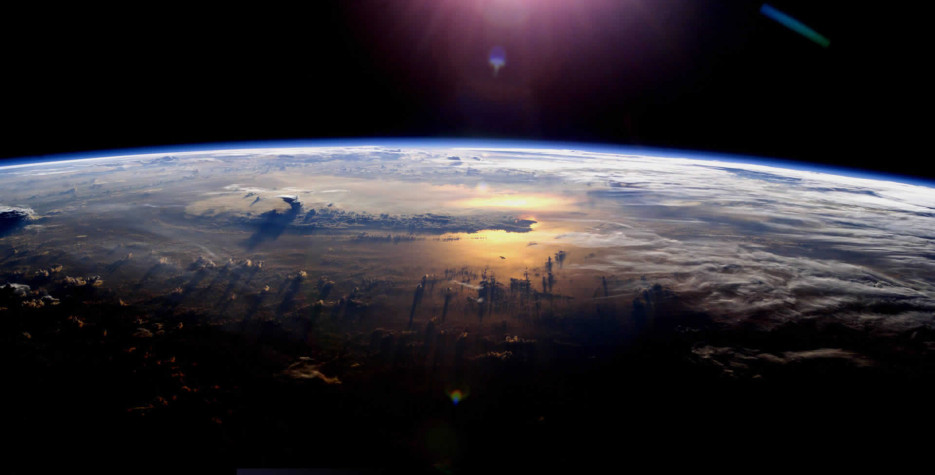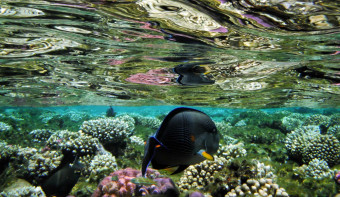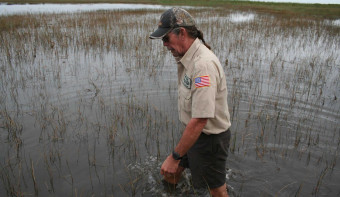About Earth Day
When is Earth Day?
Earth Day is a global holiday celebrated each year on April 22nd. The first Earth Day was on April 22nd, 1970, when over 20 million Americans across the country demonstrated through marches and teach-ins to raise awareness about pressing environmental issues. At the U.N. on Earth Day 2016, over 170 countries signed the landmark Paris Agreement to fight climate change and harmful environmental practices across the globe.
It has been estimated that Earth Day is celebrated by over a billion people worldwide, making it the most widely celebrated secular holiday in the world after New Year's Day and International Worker's Day.
History of Earth Day
Earth Day founder Gaylord Nelson, then a U.S. Senator from Wisconsin, proposed the first nationwide environmental protest "to shake up the political establishment and force this issue onto the national agenda. " "It was a gamble," he recalls, "but it worked." At the time, Americans were slurping leaded gas through massive V8 sedans. Industry belched out smoke and sludge with little fear of legal consequences or bad press. Air pollution was commonly accepted as the smell of prosperity.
On April 22nd 1970, 20 million Americans took to the streets, parks, and auditoriums to demonstrate for a healthy, sustainable environment. Thousands of colleges and universities organized protests against the deterioration of the environment. Groups that had been fighting against oil spills, polluting factories and power plants, raw sewage, toxic dumps, pesticides, freeways, the loss of wilderness, and the extinction of wildlife suddenly realized they shared common values.
The date of April 22nd was chosen as it falls between final exams and spring break for students in America, who were seen as an important group that would get behind the ideas of Earth Day.
Earth Day 1970 achieved a rare political alignment, enlisting support from Republicans and Democrats, rich and poor, city slickers and farmers, tycoons and labor leaders. The first Earth Day led to the creation of the United States Environmental Protection Agency and the passage of the Clean Air, Clean Water, and Endangered Species acts. Sen. Nelson was awarded the Presidential Medal of Freedom -- the highest honor given to civilians in the United States -- for his role as Earth Day founder.
As 1990 approached, a group of environmental leaders asked Denis Hayes to organize another big campaign. This time, Earth Day went global, mobilizing 200 million people in 141 countries and lifting the status of environmental issues on to the world stage. Earth Day 1990 gave a huge boost to recycling efforts worldwide and helped pave the way for the 1992 United Nations Earth Summit in Rio de Janeiro.
Although Earth Day was founded by Senator Nelson, the name was actually coined by an advertising executive called Julian Koenig, who was also responsible for some famous marketing catch phrases, such as "Timex, it takes a licking, but keeps on ticking".
As the millennium approached, Hayes agreed to spearhead another campaign, this time focused on global warming and a push for clean energy. Earth Day 2000 combined the big-picture feistiness of the first Earth Day with the international grassroots activism of Earth Day 1990. For 2000, Earth Day had the Internet to help link activists around the world. By the time 22 April rolled around, 5,000 environmental groups around the world were on board, reaching out to hundreds of millions of people in a record 184 countries.
Many cities extend the Earth Day celebration to be an entire week, usually starting on 16 April, and ending on Earth Day, 22 April.
Article adapted from Earth Day network press room.
External links
Similar Observances
World Reef Day 🐠
Read More
World Ranger Day
Read More
World Bamboo Day
Read More










